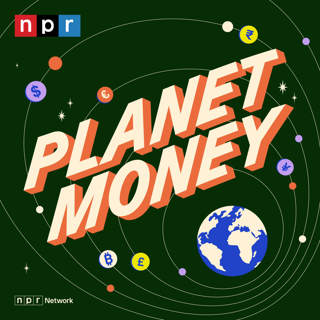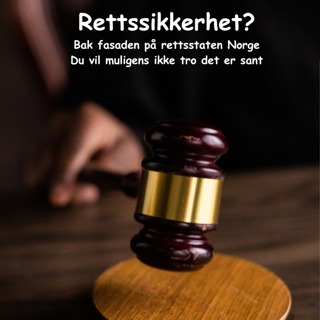
How to launder $600 million on the internet
Erin Plante is a private detective who specializes in chasing down stolen cryptocurrency. In March of 2022, she got the biggest assignment of her career: Hackers had broken into an online game called Axie Infinity and made off with over $600 million worth of digital money.It was the largest crypto heist in history. And now it was Erin's job to find that money and get it back. Erin's investigation would lead her to face off against some of the world's most formidable digital money launderers, whose actions would soon raise alarms at the highest levels of government — even threaten the nuclear security of the entire planet.This episode was hosted by Jeff Guo and Keith Romer, produced by James Sneed, edited by Jess Jiang, fact-checked by Willa Rubin & Sam Yellowhorse Kesler, and engineered by Maggie Luthar. Alex Goldmark is our executive producer.Help support Planet Money and get bonus episodes by subscribing to Planet Money+ in Apple Podcasts or at plus.npr.org/planetmoney.Learn more about sponsor message choices: podcastchoices.com/adchoicesNPR Privacy Policy
16 Sep 202326min

China's weakening economy in two Indicators
In China, data on the economy is sometimes difficult to come by. The Chinese government has put a pause on releasing some of its official economic data. But many of the stories emerging from the country paint a clear picture: the second largest economy in the world is struggling.Today, our friends at The Indicator share some of their recent reporting on China. First up, it's a special edition of the Beigie Awards focused entirely on China. What can the approach of the Federal Reserve's Beige Book - i.e. looking at anecdotes that tell us something about where the economy is headed - show us about China's economy?Then, we take a deep dive into one of the most alarming indicators in China: the skyrocketing urban youth unemployment rate.This episode was hosted by Darian Woods, Wailin Wong, and Robert Smith. The original Indicator episodes were produced by Corey Bridges with engineering by Robert Rodriguez. They were fact-checked by Cooper Katz McKim and Sierra Juarez. They were edited by Paddy Hirsch and Kate Concannon.Help support Planet Money and get bonus episodes by subscribing to Planet Money+ in Apple Podcasts or at plus.npr.org/planetmoney.Learn more about sponsor message choices: podcastchoices.com/adchoicesNPR Privacy Policy
13 Sep 202318min

Is economists' favorite tool to crush inflation broken?
When economists and policymakers talk about getting inflation under control, there's an assumption they often make: bringing inflation down will probably result in some degree of layoffs and job loss. But that is not the way things have played out since inflation spiked last year. Instead, so far, inflation has come down, and unemployment has stayed low.So where does the idea of this tradeoff – between inflation and unemployment – come from? That story starts in the 1940s, with a soft-spoken electrical engineer-turned-crocodile hunter-turned-economist named Bill Phillips. Phillips was consumed by the notion that there are underlying forces at work in the economy. He thought that if macroeconomists could only understand how those forces work, they could keep the economy stable.On today's show, how the Phillips Curve was born, why it went mainstream, and why universal truths remain elusive in macroeconomics. This episode was hosted by Willa Rubin and Nick Fountain, and produced by Sam Yellowhorse Kesler. It was edited by Molly Messick, and engineered by Maggie Luthar. Sierra Juarez checked the facts. Help support Planet Money and get bonus episodes by subscribing to Planet Money+ in Apple Podcasts or at plus.npr.org/planetmoney.Learn more about sponsor message choices: podcastchoices.com/adchoicesNPR Privacy Policy
8 Sep 202323min

The prince of prints and his prints of Prince
In 1981, photographer Lynn Goldsmith took a portrait of the musician Prince. It's a pretty standard headshot — it's in black-and-white, and Prince is staring down the camera lens.This was early in his career, when he was still building the pop icon reputation he would have today. And in 1984, shortly after Prince had released Purple Rain, he was chosen to grace the cover of Vanity Fair. The magazine commissioned pop culture icon Andy Warhol to make a portrait of Prince for the cover. He used Lynn Goldsmith's photo, created a silkscreen from it, added some artistic touches, and instead of black-and-white, colored the face purple and set it against a red background. Warhol was paid, Goldsmith was paid, and both were given credit.However, years later, after both Prince and Warhol had passed away, Goldsmith saw her portrait back out in the world again. But this time, the face was orange, and Goldsmith wasn't given money or credit. And what began as a typical question of payment for work, led to a firestorm in the Supreme Court. At the center of it, dozens of questions of what makes art unique. And at what point does a derivative work become transformative? The answer, it seems, has to do less with what art critics think, and more with what the market thinks.Help support Planet Money and get bonus episodes by subscribing to Planet Money+ in Apple Podcasts or at plus.npr.org/planetmoney.Learn more about sponsor message choices: podcastchoices.com/adchoicesNPR Privacy Policy
6 Sep 202328min

How to fight a patent pirate
Back in the 1990s, Dr. Raghunath Mashelkar was in his office in New Delhi when he came across a puzzling story in the newspaper. Some university scientists in the U.S. had apparently filed a patent for using turmeric to help heal wounds. Mashelkar was shocked, because he knew that using turmeric that way was a well known remedy in traditional Indian medicine. And he knew that patents are for brand new inventions. So, he decided to do something about it – to go to battle against the turmeric patent.But as he would soon discover, turmeric wasn't the only piece of traditional or indigenous knowledge that had been claimed in Western patent offices. The practice even had its own menacing nickname - biopiracy. And what started out as a plan to rescue one Indian remedy from the clutches of the U.S. patent office, eventually turned into a much bigger mission – to build a new kind of digital fortress, strong enough to keep even the most rapacious of bio-pirates at bay.This episode was produced by Willa Rubin with help from James Sneed and Emma Peaslee. It was edited by Molly Messick. It was fact-checked by Sierra Juarez. Our engineers were Josh Newell and James Willetts. Planet Money's executive producer is Alex Goldmark.Help support Planet Money and get bonus episodes by subscribing to Planet Money+ in Apple Podcasts or at plus.npr.org/planetmoney.Learn more about sponsor message choices: podcastchoices.com/adchoicesNPR Privacy Policy
1 Sep 202325min

Summer School 8: Graduation and the Guppy Tank
Congratulations to the Planet Money Summer School Class of 2023! Today, you become masters of business administration... spelled with lower-case letters for legal purposes. Your diploma is waiting for you just across the stage.But first, there's one final skill to impart: the pitch. We wouldn't be doing our job as a half-baked parody of a business school if we didn't leave you with the confidence and opportunity to stand in front of an investor and ask for money. We understand what you ambitious business school graduates really want is the chance to launch something and get rich.So we're combining graduation with a little test of ideas, a showdown of startups, a competition of companies. We are going to put our own spin on a pitch competition like you see on Shark Tank. We hear from five listeners with real ideas for startups.Can they make a successful pitch? What will investors be looking for in their presentation? Can they come prepared with persuasive total addressable market analyses? Who will have the sharpest customer pain points to solve? We shall see.Our business expert will give us a rare glimpse into the mind of investors and what they're looking for. Only one graduate will be crowned the winner as this year's valedictorian. If you want to get your diploma right now, take the 2023 Planet Money Summer School Quiz to earn your diploma!If you share it on social media, tag us so we can celebrate with you.Find all episodes of Planet Money Summer School here.Learn more about sponsor message choices: podcastchoices.com/adchoicesNPR Privacy Policy
30 Aug 202331min

The secret entrance that sidesteps Hollywood picket lines
Across Hollywood right now, writers and actors are picketing in front of studio lots. They're walking back and forth, holding up signs demanding concessions on things like pay, how many writers work on projects, and the use of AI in TV and movies.But, on some of these lots, there are these strange alternate entrances where there are no picketers. Here drivers can come and go as they please without ever encountering any sign of a strike.Behold the neutral gate. An entrance intended for people who work at these lots but don't work for production companies that are involved with these particular strikes. (Usually that means things like game shows or TV commercials.)But, as one group of picketers recently experienced, it's hard to know if these entrances are, in fact, only being used by neutral parties or if the entrances might be being abused.On today's episode, the question of whether one Hollywood production was taking advantage of the neutral gate, and what the fight over a driveway can teach us about the broader labor battles in Hollywood and across the country.This episode was hosted by Dave Blanchard and Alexi Horowitz-Ghazi, with reporting from Kenny Malone. It was produced by James Sneed and engineered by James Willetts. It was fact checked by Sierra Juarez and edited by Keith Romer. Alex Goldmark is our executive producer.Help support Planet Money and get bonus episodes by subscribing to Planet Money+ in Apple Podcasts or at plus.npr.org/planetmoney.Learn more about sponsor message choices: podcastchoices.com/adchoicesNPR Privacy Policy
26 Aug 202321min

Summer School 7: Negotiating and the empathetic nibble
How do you get the best deal? How do you know you're getting the best deal? Whether you're talking down the price of a car or talking up your salary, you don't have to be a jerk to get what you want. Negotiations can be win-win – if you know what to ask for and how to grow the pie.We have three stories in today's episode about how to negotiate tactically. First, a hostage negotiator tries to buy a car. Will he get far? Then, one man's encounter at the airline ticket booth may inform how you respond to your next job offer. Finally, how to avoid a food fight and make a deal that benefits everybody.We'll learn about something called BATNA, or best alternative to a negotiated agreement, which can tell you when to stand firm and when to walk away. We'll find out how to shift our thinking about what success can look like in a negotiation, and shift your counterpart's thinking too.Come learn the techniques of expert negotiators in the penultimate episode of Planet Money Summer School, MBA edition. Next week: Graduation! So, you have one week to negotiate the cost of your cap and gown.Our Summer School series is hosted by Robert Smith and produced by Max Freedman. Our project manager is Julia Carney. This episode was edited by our executive producer, Alex Goldmark, and engineered by James Willetts. The show was fact-checked by Sierra Juarez.Help support Planet Money and get bonus episodes by subscribing to Planet Money+ in Apple Podcasts or at plus.npr.org/planetmoney.Learn more about sponsor message choices: podcastchoices.com/adchoicesNPR Privacy Policy
23 Aug 202333min






















